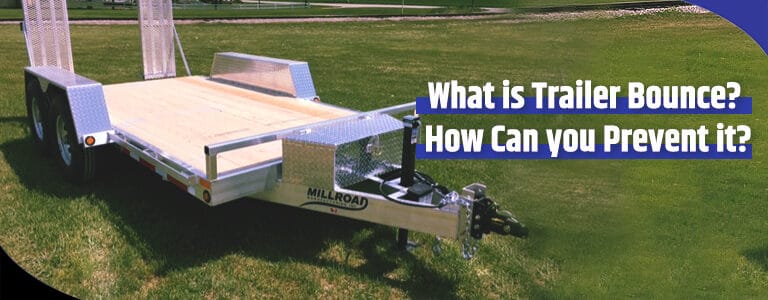
What Is Trailer Bounce and How Can You Prevent It?
Towing a trailer takes planning, patience and attention to safety, whether it is loaded or empty. While many factors can cause problems when towing, one of the biggest concerns is trailer bounce. If you’ve ever tried to pull an aluminum landscape trailer, you likely have encountered this issue. Read more to learn about what trailer bounce is, where it comes from, the danger it holds, and how to stop trailer bounce.
What Is Trailer Bounce?
It only takes one time to experience this phenomenon to recognize it. When a trailer being towed seems to sail through the air briefly before landing back on its wheels, that is trailer bounce. Depending on the weight of the trailer and the weight of your load, it can happen only occasionally when you hit a bump, or it can continue repeatedly as you drive down the road. At a minimum, it is unsettling, but it can potentially cause damage to the trailer, the joint or the items in the load.
What Causes Trailer Bounce?
Numerous factors can cause trailer bounce, including:
- Underinflated tires or improper tire pressure
- Worn shocks on the tow vehicle
- Inappropriate shocks for the load (the bouncing continues after going over a bump)
- Unequal weight distribution within the trailer
- Suspension damage due to excessive weight
- Potential damage to one of the trailer axles
- Empty trailer
- Oversized tires
- Wrong tongue length
All parts of a towing system must be working together to keep the tires on the pavement and ensure a smooth ride.
Why Is Trailer Bounce Dangerous?
If you value what you are towing, you want to minimize damage to the load. Trailer bounce is dangerous because:
- The driver could lose control of the vehicle.
- The trailer could be damaged (if the load is too heavy).
- The risk of a broken joint between the trailer and the tow vehicle.
How To Stop Trailer Bounce
There are a few steps you can take to increase the safety and comfort of your ride when towing. Familiarizing yourself with your trailer and understanding the importance of weight distribution are essential steps to ensure an incident-free towing experience.
1. Distribute the Load Properly
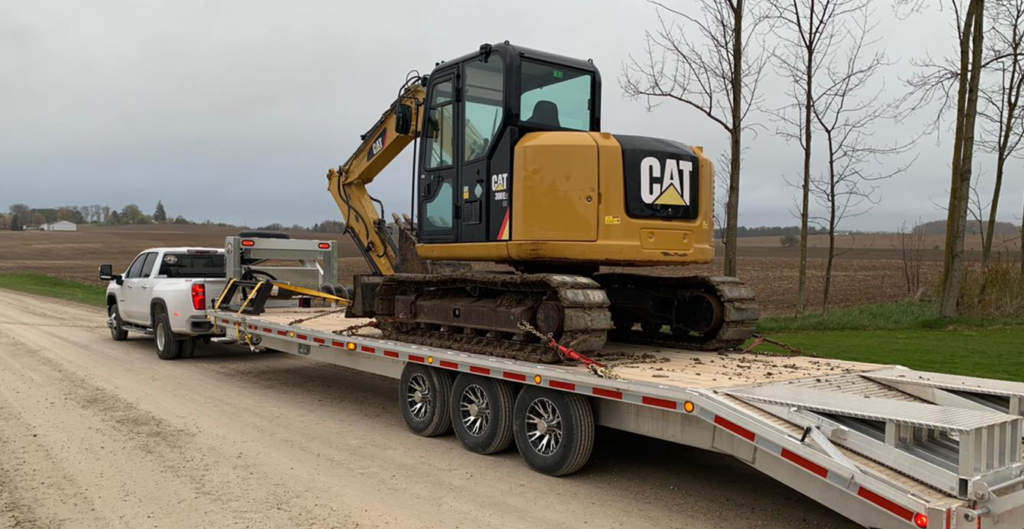
How you load your trailer can materially affect the ease of towing. Improper load distribution can cause bouncing and swaying, potentially leading to difficulty controlling the vehicle. Generally, 60% of the load weight should be toward the front of the trailer. However, you must make sure that the tongue weight does not exceed 10-15% of your gross trailer weight.
2. Reduce Tire Pressure
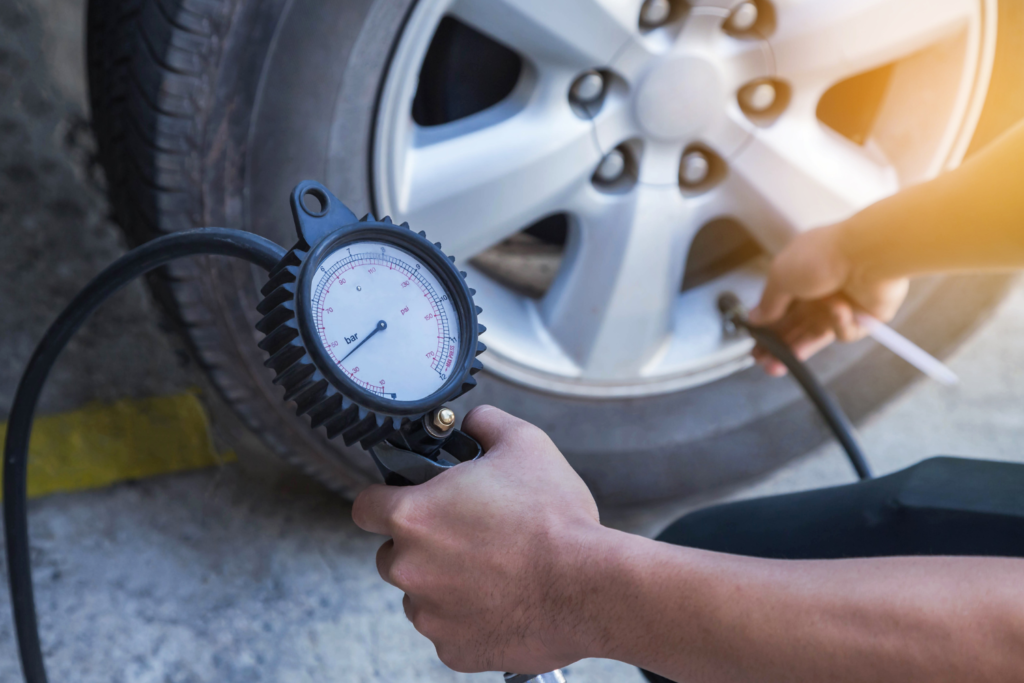
Lowering tire pressure can make for a smoother ride. A general rule of thumb is to reduce your pressure by half to tow an empty trailer. However, the pounds per square inch needed are dependent on the tire size, trailer weight and whether the tire is a vehicle or trailer tire. Full tire inflation is usually required for a full load.
3. Check Suspension Ratings
Every trailer has a suspension rating. For a smooth ride, make sure that your gross trailer weight exceeds that number. Gross trailer weight is the total of the load added to the trailer weight. As long as the weight of the unloaded trailer exceeds the suspension rating, the trailer will compress the springs, keeping it balanced and reducing the amount of rebound.
4. Use a Weight Distribution Hitch
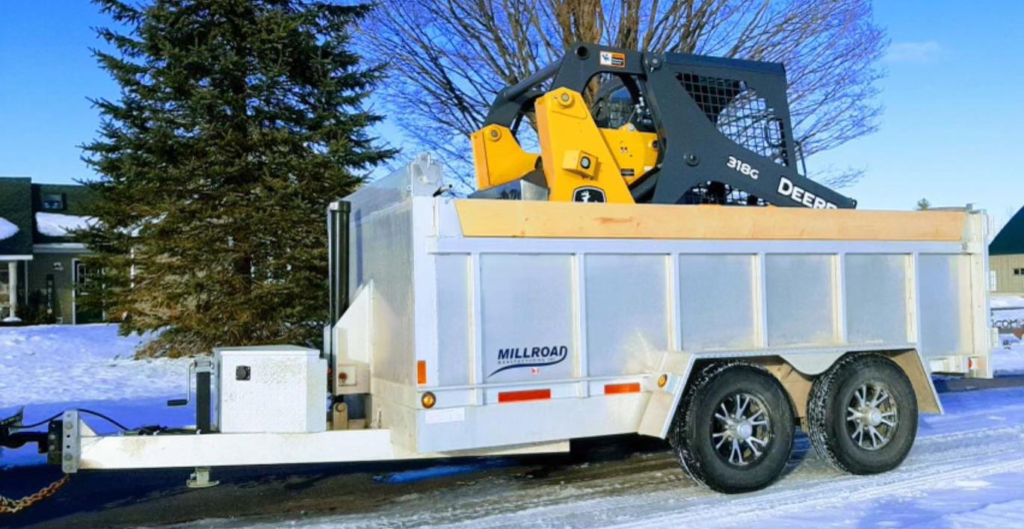
A weight distribution hitch can help to distribute the weight of the trailer more evenly, which can help to prevent bounce. Here are some additional benefits of using a weight distribution hitch:
- Improved stability: A weight distribution hitch can help to improve the stability of your tow vehicle and trailer combination. This can make it easier to control the trailer, especially in windy conditions.
- Increased towing capacity: A weight distribution hitch can increase the towing capacity of your tow vehicle. This means that you can tow heavier trailers without overloading your tow vehicle.
- Reduced wear and tear: A weight distribution hitch can help to reduce wear and tear on your tow vehicle. This is because the hitch helps to distribute the weight of the trailer more evenly, which reduces stress on your tow vehicle’s suspension and brakes.
5. Drive Smoothly
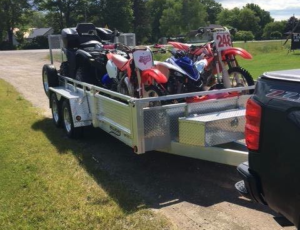
When you are towing a trailer, it is important to drive smoothly. Avoid sudden braking, acceleration, and turns. This is especially important during adverse weather, or if there are high winds. Take extra precautions when driving through rain, wind, sleet and snow. Road surfaces can impact trailer bounce, but alert and adept driving can minimize these effects.
6. Inspect the Trailer Regularly
Make sure that the trailer is in good condition and that all of the components are working properly. Look extra closely at any component that is rusted, corroded, loose, or damaged. Also, inspect:
- Tire tread
- Hitch grease and attachments
- Trailer shocks and struts
- The load itself (proper weight distribution)
Millroad: Standing Out From the Competition
Millroad aluminum trailers are known for their durability, lightweight composition and ease of use. Here are some unique selling points:
- Durability: Millroad trailers are made from high-quality aluminum, which makes them strong and durable. They are also rust-resistant, so you can use them in any climate.
- Lightweight: Aluminum is a lightweight material, so Millroad trailers are easy to tow. This makes them a good choice for people who have small tow vehicles or who need to tow long distances.
- Ease of use: Millroad trailers are easy to set up and take down. They also have a variety of features that make them easy to use, such as a built-in ramp and a tailgate that opens up for easy loading and unloading.
Choose the Highest Quality Trailer
At Millroad Manufacturing, we use Torflex axles on our custom aluminum trailers to ensure a smooth ride. The rubber ride suspension system provides a cushion for the tow, virtually eliminating trailer bounce. We take great pride in building the highest quality trailers to ensure our customers have a safe and comfortable tow every time. Contact us today to learn more about how we can retrofit your trailer to reduce trailer bounce or set you up with a brand-new one.